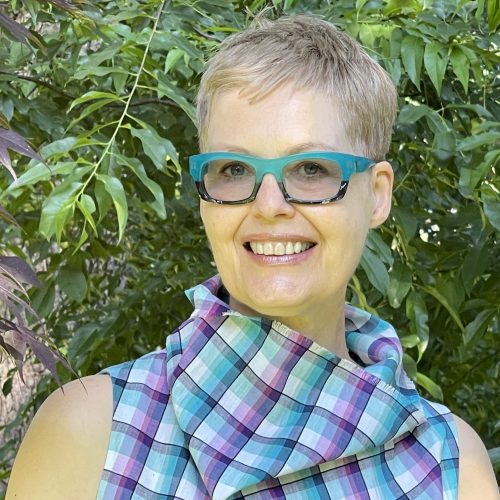Alum dedicates her career to sketching a larger picture
Meta Brunzema (BEDS’87) is using her architectural skills to bring social, economic and environmental justice to her community.
By Zein Mari Alsaka
 Meta Brunzema (BEDS’87) knew she wanted to be an architect ever since she was 12 years old. Her father was a pipe organ builder and Brunzema grew up admiring the drawings he would make of the massive musical instrument. Coming from a very artistic and cultural family, she discovered early on her talent for drawing and painting, and that architecture would suit her well.
Meta Brunzema (BEDS’87) knew she wanted to be an architect ever since she was 12 years old. Her father was a pipe organ builder and Brunzema grew up admiring the drawings he would make of the massive musical instrument. Coming from a very artistic and cultural family, she discovered early on her talent for drawing and painting, and that architecture would suit her well.
While completing the Bachelor of Environmental Design Studies (BEDS) program at Dal, Brunzema did a semester in New York City where she worked for Steven Holl and met many influential architects. This made her realize the importance of growing and maintaining her professional network. Upon her return, Brunzema co-led a lecture series, to which she invited some of those international architects to speak. Brunzema remembers getting tremendous support in organizing this series from former dean, Professor Esmail “Essy” Baniassad and says, “Essy was incredibly wonderful and encouraging.”
Upon completing her undergraduate studies, Brunzema went back to New York City and obtained her Master of Architecture from Columbia University. There, she became a licensed architect working for several high-profile firms, gaining considerable hands-on, practical experience.
Brunzema is principal of Meta Brunzema Architect, a member of the Collective for Community, Culture and Environment (CCCE) and an adjunct assistant professor at Pratt Institute. She is also a founding member of the Hudson River Park Friends, an independent, non-profit organization that maintains and enhances the park on the west side of Manhattan.
A community-focused approach
Early on in her career, Brunzema was active in several community and environmental organizations where she learned about the politics of community-led urban and public space design. She says, “I quickly became more and more interested in working at the urban scale rather than designing private homes – since this type of design can benefit more people.”
Through Pratt Institute, she was introduced to a network of faculty members who shared similar objectives. They decided to work together at CCCE, a women-owned and led planning, architecture and urban design practice and professional network based in New York City. It focuses on projects for social, economic, and environmental justice.
After joining CCCE, Brunzema gradually shifted her projects from her smaller firm to the collective, realizing that there is strength in collaboration. She says, “I prefer collaborating with a large group of very knowledgeable professional women.” She believes it is a lot more effective to work on community-focused projects as part of a bigger and more impactful team, whose members have diverse backgrounds and unique skillsets. Brunzema also mentions that the collective structure fosters equality between the members, and interdisciplinary collaborations.
One of Brunzema’s most notable projects is “The River Pool” located in Beacon on the Hudson River, for which she recently received Pratt Institute’s Open House Innovation Award. The swimming pool was commissioned by a group led by the late folk singer and civil rights activist Pete Seeger. The flow-through pool was designed as a place for river swimming for all, but especially for Black children. (Segregation during the Civil Rights era prevented Black families from bathing in public pools.) Made of high-strength, permeable materials, the pool’s submerged structure ensures safe swimming, fun and environmental education. It’s eco-friendly design also minimizes negative effects on fish and the aquatic environment.
Working towards more sustainable designs
In addition to being an adjunct professor at Pratt Institute, Brunzema is the departmental sustainability coordinator of the Graduate Architecture and Urban Design Program. In this role, she promotes sustainable practices in her department, updates curricula to ensure the course content includes sustainability principles and organizes public events that help raise social and environmental awareness.
Brunzema is also a member of Pratt Institute’s Housing Consortium and leads its Decarbonization Working Group which is comprised of several researchers with different backgrounds and experiences. The group conducts design research about sustainable construction materials, including biobased materials such as mass timber, hemp and straw.
Advice for future architects
Brunzema believes that a young architect’s first job is extremely important and will define them for a considerable portion of their career. “Pick the best firm that you can possibly find rather than the first position that comes your way, even if that means waiting a little bit longer for a job,” she advises. “A school of architecture will give you a framework for how to think and will teach you certain skills, but all of these skills really get refined during your first years of practice, so it is very important to be in a firm that has high standards for design, drawing, communication and even writing.”
Brunzema also encourages people to travel and even work in different countries if possible. “Seek diverse historical, social and cultural perspectives; only travel can open your mind to the richness and complexity that the world has to offer.”